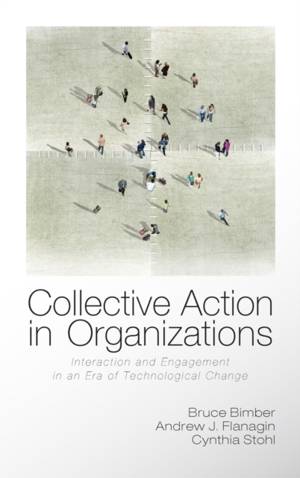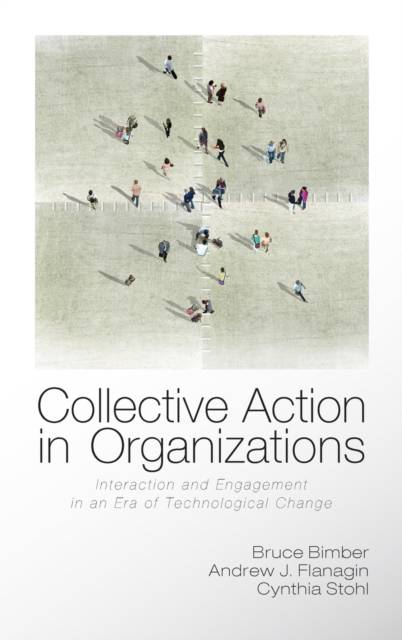
- Afhalen na 1 uur in een winkel met voorraad
- Gratis thuislevering in België vanaf € 30
- Ruim aanbod met 7 miljoen producten
- Afhalen na 1 uur in een winkel met voorraad
- Gratis thuislevering in België vanaf € 30
- Ruim aanbod met 7 miljoen producten
Zoeken
Collective Action in Organizations
Interaction and Engagement in an Era of Technological Change
Bruce Bimber, Andrew Flanagin, Cynthia Stohl
€ 136,95
+ 273 punten
Omschrijving
Challenging the notion that digital media render traditional, formal organizations irrelevant, this book offers a new theory of collective action and organizing. Based on extensive surveys and interviews with members of three influential and distinctive organizations in the United States - The American Legion, AARP, and MoveOn - the authors reconceptualize collective action as a phenomenon in which technology enhances people's ability to cross boundaries in order to interact with one another and engage with organizations. By developing a theory of Collective Action Space, Bimber, Flanagin, and Stohl explore how people's attitudes, behaviors, motivations, goals, and digital media use are related to their organizational involvement. They find that using technology does not necessarily make people more likely to act collectively, but contributes to a diversity of "participatory styles," which hinge on people's interaction with one another and the extent to which they shape organizational agendas. In the digital media age, organizations do not simply recruit people into roles, they provide contexts in which people are able to construct their own collective experiences.
Specificaties
Betrokkenen
- Auteur(s):
- Uitgeverij:
Inhoud
- Aantal bladzijden:
- 240
- Taal:
- Engels
- Reeks:
Eigenschappen
- Productcode (EAN):
- 9780521191722
- Verschijningsdatum:
- 29/02/2012
- Uitvoering:
- Hardcover
- Formaat:
- Ongenaaid / garenloos gebonden
- Afmetingen:
- 152 mm x 231 mm
- Gewicht:
- 612 g

Alleen bij Standaard Boekhandel
+ 273 punten op je klantenkaart van Standaard Boekhandel
Beoordelingen
We publiceren alleen reviews die voldoen aan de voorwaarden voor reviews. Bekijk onze voorwaarden voor reviews.











